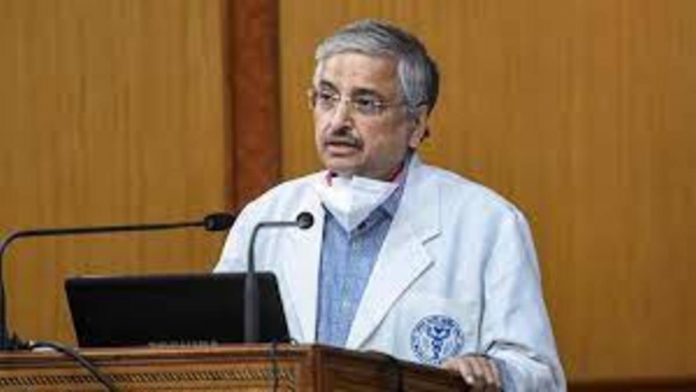Amid the country’s several parts unlocking AIIMS Chief Dr Randeep Guleria on Saturday said the third wave of Covid-19 is likely to hit the country in six to eight weeks. Vaccination a huge population of India is the main challenge of the country and extended gap in Covishield jabs “may not be a bad” approach to provide protection to more and more people, he said.
He stressed upon developing a frontier for studying mutations of the virus as he talked about the Delta plus variant which has mutated from the Delta variant of Covid-19 prompting major concern about monoclonal antibody therapy.
“As we have started unlocking, there is again a lack of Covid-appropriate behaviour. We don’t seem to have learnt from what happened between the first and the second wave. Again crowds are building up… people are gathering. It will take some time for the number of cases to start rising at the national level. But it could happen within next six to eight weeks… may be a little longer,” said the AIIMS Chief.
“It all depends on how we go ahead in terms of Covid-appropriate behaviour and preventing crowds,” he further said.
So far, about 5% of the country’s population has been fully vaccinated and by the end of this year, the government is aiming at vaccinating 108 crore of over 130 crore people in the country.
“That’s the main challenge. A new wave can usually take up to three months but it can also take much lesser time, depending on various factors. Apart from Covid-appropriate behaviour, we need to ensure strict surveillance. Last time, we saw a new variant – which came from outside and developed here – led to the huge surge in the number of cases. We know the virus will continue to mutate. Aggressive surveillance in hotspots is required,” Dr Guleria said.
“Mini-lockdown in any part of the country, which witnesses a surge and a rise in positivity rate beyond 5 per cent, will be required. Unless we’re vaccinated, we’re vulnerable in the coming months,” he underlined, stressing that “testing, tracking, and treating” should be focus in the areas of maximum cases.
“We have to factor in human behaviour while unlocking, which needs to be done in a graded manner,” he stressed.
On the spread of Delta variant and having caused third wave in the United Kingdom Dr Guleria said, “Virus is still mutating, we need to be careful”.
First identified in India, Delta variant is now resulting 99% of all the Covid-19 cases in UK.
The time gap between the waves is shortening and is becoming a worrying sign, the AIIMS Chief said.
“During the first wave, the virus was not spreading that rapidly… all that changed during the second wave, and the virus became much more infectious. Now the Delta variant that’s spreading is much more infectious. Faster spread is likelier,” he added.
The draining second wave had resulted in hospitals running short of beds, medical supplies, oxygen in several parts of the country. Social media were flooded with SOS messages prompting many countries coming for help with supplying needy medical supplies. Many states have eased their lockdown and lockdown like restrictions but the country is still not prepared for the likely third wave.
In Maharashtra, specialists have estimated a sum of 8 lakh Covid-19 active cases in the third wave in the state.
“When there is a huge increase in the number of cases, shortage in beds follows. The strategy should be multi-pronged – we have to make sure fresh cases don’t rise. Any healthcare system globally will tend to collapse with the unprecedented rise in the infections,” Dr Guleria stressed this morning.




